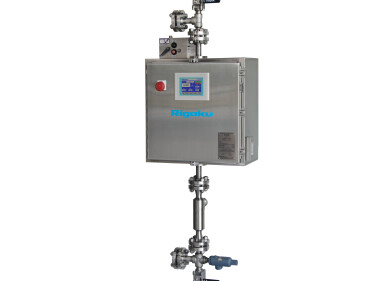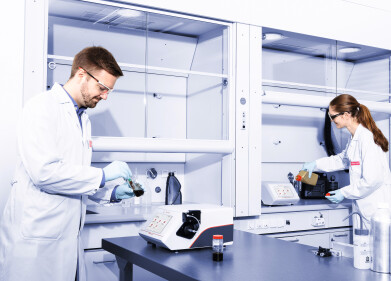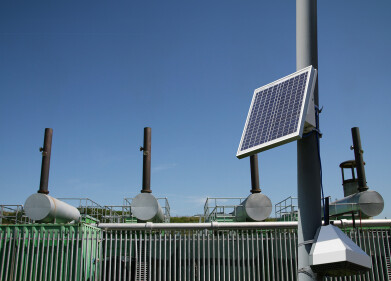Measurement and Testing
How is Gas Chromatography Used in Petrochemical Analysis?
Oct 24 2021
Producers, refiners and buyers rely on a range of different techniques to analyse petrochemicals, including gas chromatography (GC). Widely used across the petrochemicals sector, the advanced analytical method is used to identify and quantify the main chemical components found in fuel samples, as well as detect trace impurities that could hinder the production process and compromise the quality of the finished product.
Want to know more? Below, we explore the role of GC for petrochemical analysis in more detail and the key benefits it offers.
-
Maximising yields
Detailed analysis of feedstocks allows refineries to optimise operations at every stage of the production process. Characterising fuel at the molecular level helps to improve workflows and increase productivity. Ultimately, this maximises yields and increases profits.
-
Preventing equipment damage
Like oil refineries, not all petrochemical facilities are created equal. Some are designed to handle certain chemical components and others are not. Gas chromatography allows refiners to characterise feedstocks at a chemical level and determine their suitability. By avoiding feedstocks with certain impurities, petrochemical refineries can minimise damage to expensive equipment.
-
Quality control
Gas chromatography is fundamental to quality control and allows producers and refiners to meet the increasingly strict measures enforced by the industry.
Choosing the right detector for the job
Gas chromatography is used for a variety of applications and it’s important to choose the right detector for the job. For example, flame photometric instruments are used to detect sulphur in residues while photoionization detectors are useful for identifying BTX and other aromatic compounds. Flame ionization detectors are the instruments of choice for analysing refinery streams and thermal conductivity detectors are used to detect inorganic gases in workspaces.
Modern, miniaturised GC detectors
Over the past decade, GC technology has advanced to become more sensitive. Modern instruments offer lower detection limits and allow analysts to identify a higher number of individual chemical components.
Instruments equipped with multiple detectors are used to analyse complex mixtures and simultaneously identify dozens of components from a single sample. GC instruments are also becoming smaller and more portable, allowing for on-site analysis. The miniaturisation of gas chromatography instruments has also helped to reduce the running costs of refineries.
Find out more about the advent of compact, handheld analytical instruments in ‘Development of a miniature and air-transportable liquid chromatograph with UV detector: Crude oil characterization by GPC-UV’ featuring insight from Franck Amiet on behalf of Chromatotec.
Digital Edition
PIN 25.5 Oct/Nov 2024
November 2024
Analytical Instrumentation - Picturing Viscosity – How Can a Viscometer or a Rheometer Benefit You? - Sustainable Grease Formulations: Evaluating Key Performance Parameters and Testing Method...
View all digital editions
Events
Nov 27 2024 Istanbul, Turkey
Biogas Convention & Trade Fair 2024
Nov 27 2024 Hanover, Germany
Dec 03 2024 Dusseldorf, Germany
Dec 08 2024 Anaheim, CA, USA
Turkey & Black Sea Oil and Gas
Dec 11 2024 Istanbul, Turkey



















